Worldbuilding and the ‘Fictional Dream’
As a speculative writer thinking about worldbuilding, I’m reminded of one of my favorite shows of all time: Mystery Science Theater 3000. I think it’s the same appeal that draws people to laugh at videos of people falling down—it’s funny to watch, but I also know that it could easily happen to me.
That is, I can laugh along with the Satellite of Love crew at the ineptitude of B-movie directors who can’t seem to avoid glaring plot holes, nonsensical “scientific” explanations, and even monsters with visible puppet strings—all the while knowing that I could fall into similar story-killing traps in the next scene I write.
One of the reasons we love great speculative fiction is that it immerses us in a fantastic world that feels real. And when we’re enjoying a great book, movie, or show, we no longer notice the couch we’re sitting on, the sound of the faucet dripping, or the cat walking on top of us to get our attention. We’re experiencing the story along with the characters in an almost trance-like state—what fiction theorist John Gardner describes as “the fictional dream.”
What keeps bad B-movies from being engaging are all the careless mistakes that disrupt that dream—unmotivated character actions, poorly executed dialogue, unconvincing monsters, and anything else that pulls the audience out of the moment and makes them say, “Hey, wait a minute!”
Unfortunately, these kinds of illusion-killing mistakes are also common for fantasy and science fiction writers—those who have bravely taken on the complex task of inventing a new world from scratch. While it’s impossible to think through every scientific implication of intergalactic space travel or magical agriculture, worldbuilders should at least pay attention to the things readers will notice—such as rudimentary physics, basic logic, and normal character psychology.
Here are some common worldbuilding errors that can shatter the dream experience:
Extreme environments that aren’t well thought-through
 I’ll admit, being a fantasy writer has sucked some of the fun out of enjoying pop culture. For example, here’s what happened after watching the famous “Let It Go” sequence from Disney’s Frozen:
I’ll admit, being a fantasy writer has sucked some of the fun out of enjoying pop culture. For example, here’s what happened after watching the famous “Let It Go” sequence from Disney’s Frozen:
Other people: “Oh my goodness, that was fantastic! The artistry! The message! I feel so free and validated!”
Me: “OK … but what does Elsa eat in the ice palace?”
Unexplained ice magic emanating from a Norwegian princess’s hands I can accept as part of the fairy tale. But running off to a barren mountain, making a shelter out of ice, and then expecting to survive there with no access to vegetation or even canned goods? Now I’m distracted from the story.
A writer who creates a speculative world with unusual settings needs to think through physical realities, even if they’re never overtly explained. This is vital in extreme environments such as lava planets, space stations, or dystopian versions of Earth with dramatically different climates. These are all great settings in theory and can work well. But if the writer can’t explain where people grow food or where they go to the bathroom, they’ve failed worldbuilding on a basic level.
An inhospitable environment can be used in speculative fiction, of course, with a bit of creative problem solving. For example, Foundation by Isaac Asimov starts out on Trantor, the capital of the Galactic Empire, a planet that is 100% urbanized. Where can a planet of metal and asphalt grow enough food to support its population of 45 billion? Essentially it can’t. Trantor has to depend on agricultural imports from the planets they rule over. If this sounds like a precarious political arrangement, it is, and now things are getting interesting.
No societal implications for magic or technology
If you’ve created a world with a game-changing discovery or pervasive magical power, one of your first jobs is to figure out all the irritating and mundane ways people would ruin it for everyone.
For example, if a scientific lab announced that they had discovered a method for practical, affordable teleportation, here are the first two things that would happen:
#1. Someone would demonstrate it on TV/the Internet/the Hive Mind/etc. A genius in a lab coat would give an impassioned speech about how much better the world will now be, all the ways we will save on transportation energy, connect families across the globe, and so forth. It will be a crowning achievement of mankind and very inspiring.
#2. A common criminal would steal the technology, transport themselves into a bank vault, and rob thousands of people blind. Bootleg versions of teleporters would quickly hit the black market. Pandemonium would ensue as security systems are now essentially useless. No one would be safe. Panic. Chaos. The government would step in and create a stringent military state. And someone in a lab coat will lament, “This is why humanity can’t have nice things.”
The point is, you can’t introduce cheap teleportation to society and not have issues with theft and espionage and murder. You can’t give people time travel and not expect everyone to go back and steal Cleopatra’s jewelry or try to kill Hitler.
The writer has to think through likely societal implications and then either embrace the chaos, or else create logical guidelines why this wouldn’t happen. Maybe the knowledge is limited to a select few, and the creators have to guard it from falling into the wrong hands. Or maybe the power is only available to those with special ability or rare magical tools.
Vaguely motivated conflicts
Why is the Dark Nation trying to destroy all that is good and beautiful in the Happy Valley? Well, because they’re evil, that’s why! And that’s what evil people do! They hate flowers and clean water and simple folk, and they love coal dust and terror.
The problem with this common fictional scenario is that first, it’s overused, and second, it doesn’t make a lot of sense. Sure, there may be sadists and psychopathic individuals who enjoy evil for its own sake, but it’s unlikely that a whole people group will buy into it.
Think about it: most of us want to consider ourselves good—or at least brave or proactive or strong—and we create several layers of justification to prove to ourselves that we are not bad people. (And if we are mean, we’re only mean to people who have it coming anyway!)
For that reason, much of evil group behavior is motivated by goals that sound noble: progress; purity; heritage; revenge for a legitimate past wrong; what’s only fair. The problem surfaces when these virtues, real or imagined, take precedence over morality and ethical treatment of others. The subtler the swap is, the more people will fall for it. Fear of authority can also motivate people to go along with evil behavior or at least turn a blind eye to abuses. And once someone’s gotten in too far and realized they’ve crossed a moral line, they may be unwilling to admit it and turn back.
A villain group should have an understandable perspective—probably not enough to excuse their cruelty or war crimes, but something we can at least grasp. Maybe it’s even something we can relate to in an uncomfortable way, forcing us to re-examine our own viewpoints.

Don’t underestimate the power of a well-told story
If all of these pitfalls make worldbuilding sound too complicated, take heart: the point is not to create a world that actually could be real, but one that feels real in the context of excellent storytelling.
For example, the Harry Potter universe definitely feels very real to millions of fans across the globe. But even J.K. Rowling has let slip some inconsistencies that make you scratch your head if you think about them—such as how can the entire wizarding community function when everyone has only a fifth-grade education in mathematics, writing, and other Muggle subjects? Are there really enough jobs at the Ministry of Magic and whimsical broom shops for all those Hogwarts graduates? And why would they give the ability to time-travel to a thirteen-year-old girl but never use it again?
But you never really ask these questions during the course of the novels, because Rowling is such a good storyteller that these more technical questions never occur to you. We are fully engaged in the moment, and the dream stays intact.
A writer doesn’t have to be perfect in their worldbuilding, just careful. If the rest of the world is well-developed and the plot is compelling enough, it hides the occasional (and unavoidable) gaps. The audience stays solidly within the dream that the writer weaves, never noticing that in a few places, if you pull back the curtain, you can see the puppet-strings.
Main photo courtesy of David Marcu. Ice photo courtesy of Sergey Pesterev.
Bio:
 Emily Golus has been dreaming up worlds since before she could write her name. A New England transplant now living in the Deep South, Golus is fascinated by culture and the way it shapes how individuals see the world around them. Her fantasy works are filled with diverse and complex people who are unwillingly united in times of great danger.
Emily Golus has been dreaming up worlds since before she could write her name. A New England transplant now living in the Deep South, Golus is fascinated by culture and the way it shapes how individuals see the world around them. Her fantasy works are filled with diverse and complex people who are unwillingly united in times of great danger.
 Golus aims to write stories that engage, inspire, and reassure readers that the small choices of everyday life matter. In addition to her first two fantasy novels, Escape to Vindor (winner of the 2018 Selah Award) and its upcoming sequel, she writes about world-building and what it truly means to be a storymaker. Explore her fantasy creations at WorldofVindor.com, and read her blog at EmilyGolusBooks.com.
Golus aims to write stories that engage, inspire, and reassure readers that the small choices of everyday life matter. In addition to her first two fantasy novels, Escape to Vindor (winner of the 2018 Selah Award) and its upcoming sequel, she writes about world-building and what it truly means to be a storymaker. Explore her fantasy creations at WorldofVindor.com, and read her blog at EmilyGolusBooks.com.
You can also find her on Instagram and on Facebook. In addition, you can read an introduction and excerpt to Golus’s award-winning debut novel, Escape to Vindor, posted in an earlier Spec Faith Fiction Friday article.


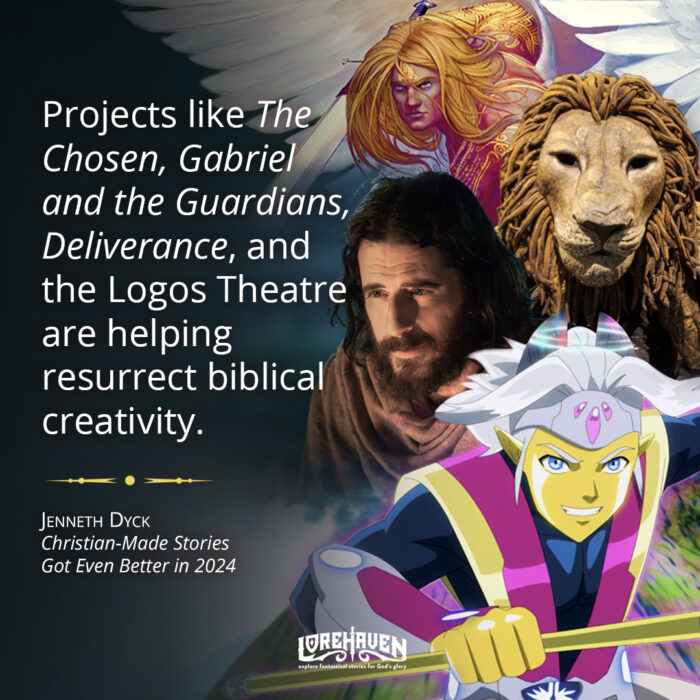





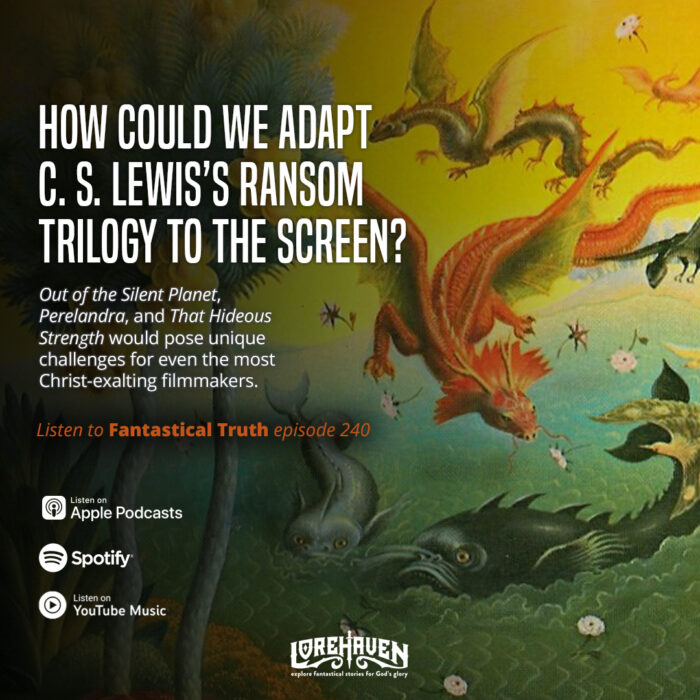











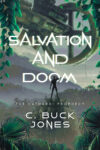
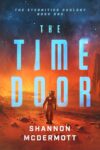
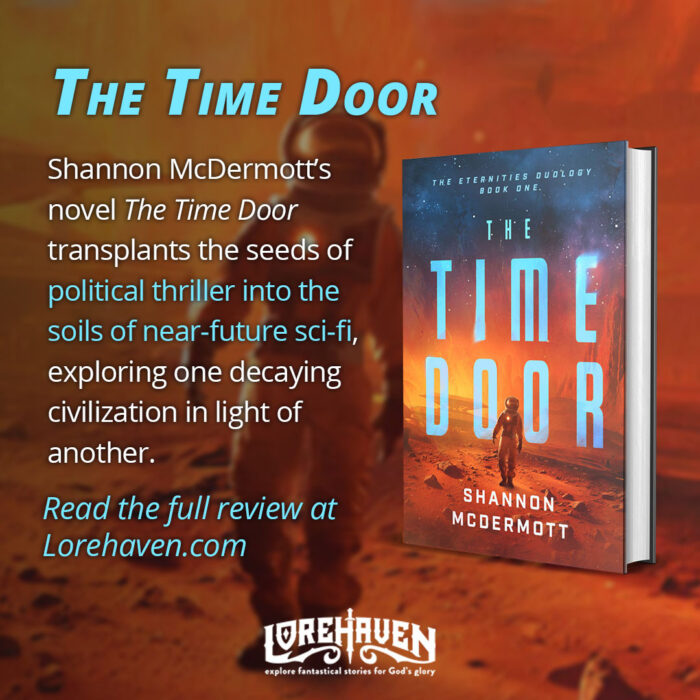
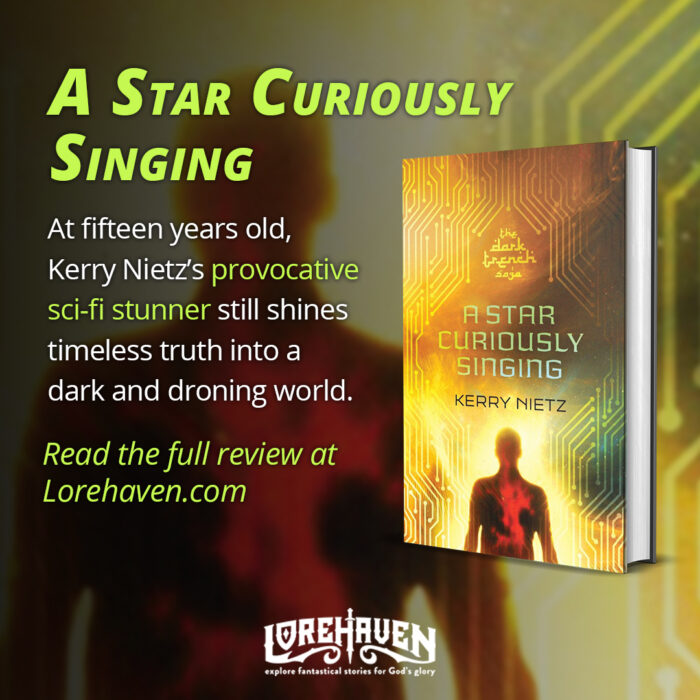

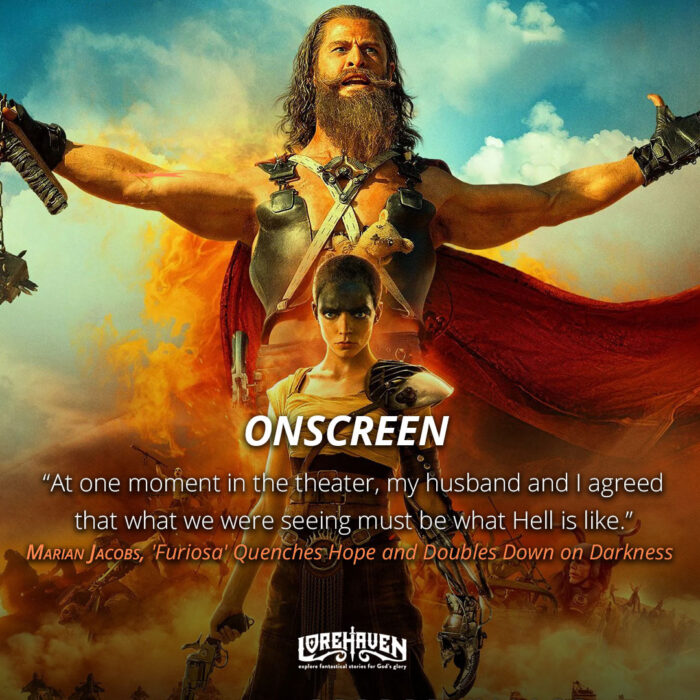


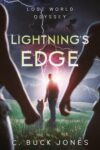









“if the writer can’t explain where people grow food or where they go to the bathroom”
This is my problem with Stargate Atlantis (which I love, btw, but it always niggled me – going on a one-way trip with no obvious provisions for these things)
In the very first episode they show a very looong line of supplies going thru the gate with them. I imagine there was some food store mixed in with all the equipment. As far as the bathrooms, well they were going to a city, and the ancients, were basically human, so it follows to reason that there would be facilities like that in the city, just because we didn’t see them, doesn’t mean they weren’t there.
Yes, that’s something I didn’t mention. If your characters are hiking through the woods or traveling through a city, the audience implicitly knows where people do their business and you don’t need to explain. The same goes for Earth-like worlds with green spaces–we can assume there are farms somewhere. The trouble comes in where there are extreme settings, such as a city of ice caves or a desert asteroid, where food and waste could be a logistical problem.
I agree – you can suspend your disbelief for all kinds of impossible things, but the real-life things need to be real life.
Yes, exactly!
Great article. To some extent, what you state here is one reason I’ve become a plotter… so I can think through all the implications of my story to be sure they make logical sense.
Making worldbuilding details deep and accurate helps make stories easier to write sometimes, too. Yes, it becomes a lot of details to work through, but at the same time it can help fix writers block. Realistic worldbuilding gives characters challenges, at the very least, and thus more story/plot material. Especially when the author considers how each of these worldbuilding elements would interact with each other.
Really liked your thoughts regarding fictional villains. It always makes me roll my eyes when I see an antagonist who is self-consciously evil. Unless you’re talking about a primordial, Luciferian-type being, virtually every evil person still thinks of themselves as “good” (even Hitler). In fact, the entire point of a well-crafted story is to set up a moral argument between the ideas of the protagonist and antagonist. The common “Disneyfied” depiction misses this completely.
Well said!